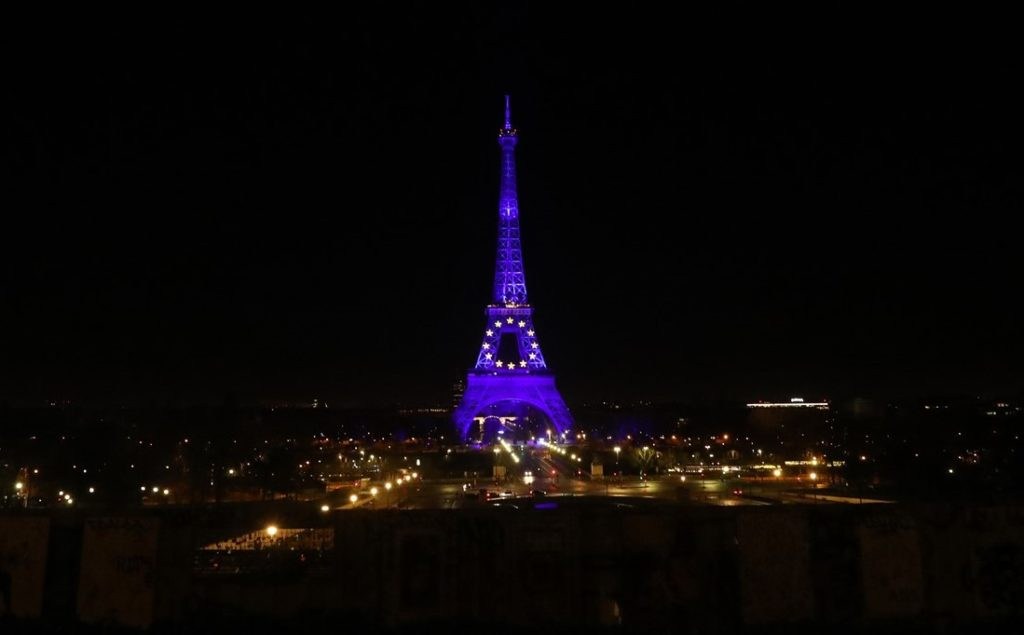On 1 January 2022, France took over the presidency of the Council of the European Union after a break of 13 years. During a six-month period, the country will lead the work of the Council, building co-operation and agreement between the member states.
The start was celebrated with emblematic buildings in Paris and cities around the country being lit up in the colours of the EU but the kick-off of the French presidency will take place on 6 – 7 January in Paris with a meeting with the College of the European Commission.
The French presidency coincides with the presidential elections in April when president Macron will be challenged by far-right opponents Marine Le Pen and Eric Zemmour. There is a fear that the election campaign might influence the way how France will carry out the EU presidency. To avoid any conflict of interest, more important EU decisions might be postponed to the second half of the presidency.
The French presidency follows the presidency of Slovenia and will be followed by the presidencies of the Czech Republic and Sweden. The trio of countries – France, Czech Republic and Sweden - have drafted an 18-month programme aiming at ensuring a smooth transition from one presidency to another but each country has also specified issues that need to be addressed during its presidency.
While the trio programme is structured around four thematic priorities, France has chosen to present its programme under the motto of three key concepts: Recovery (Relaunch), Power (Puissance) and Belonging (Appartenance).
The first concept has to do with the economic recovery after the Coronavirus crisis, the second concept with EU's foreign policy and global role, and the third one with the sense of belonging to the EU and the sharing if its common values. The third concept will be the most difficult to implement in practice in view of wide-spread Euroscepticism and concerns about the rule of law in some member states.
During the Slovenian presidency progress was made in several policy areas – not the least in the approval and adoption of the national recovery and resilience plans for 22 member states to date – but it also left unfinished businesses for its successor. The European Council meeting before Christmas did not result in any decisions on key issues such as migration and enlargement.
While the French presidency promises that it will ensure a determined promotion of multilingualism both in the work of the Council and during the meetings organized in France, its programme was at the time of press only available in French. The 75-page long document covers all relevant policy areas on the EU agenda but details and commitments have largely been left out.
The first topic in the programme, the fight against COVID-19, is also the most uncertain and critical one. A fifth wave is hitting the EU and member states are taking different measures to curb the spread of the Omicron variant. The French presidency will continue the policy of EU coordination and the promotion of the highest possible level of vaccination.
On human rights, the presidency states that it will co-organize, with the European Commission, the first Humanitarian European Forum aimed at mobilizing the international community to improve the implementation of international humanitarian law. It remains to be seen if such a forum will have any impact on EU’s foreign policy or on France’s own trade relations with major world economies.
As regards the enlargement process, the French presidency ensures that it will ensure the continuation of negotiations with candidate countries but the Western Balkans summit will take place only towards the end in June 2022.
It is more concrete when outlining its position on “building a responsible and sustainable capitalism” with fair taxation and fight against tax evasion as proposed by the Commission before Christmas. It will also lead negotiations with the European Parliament on a new directive on adequate minimum wages aiming at ensuring fair working conditions in the EU.
M. Apelblat
The Brussels Times

